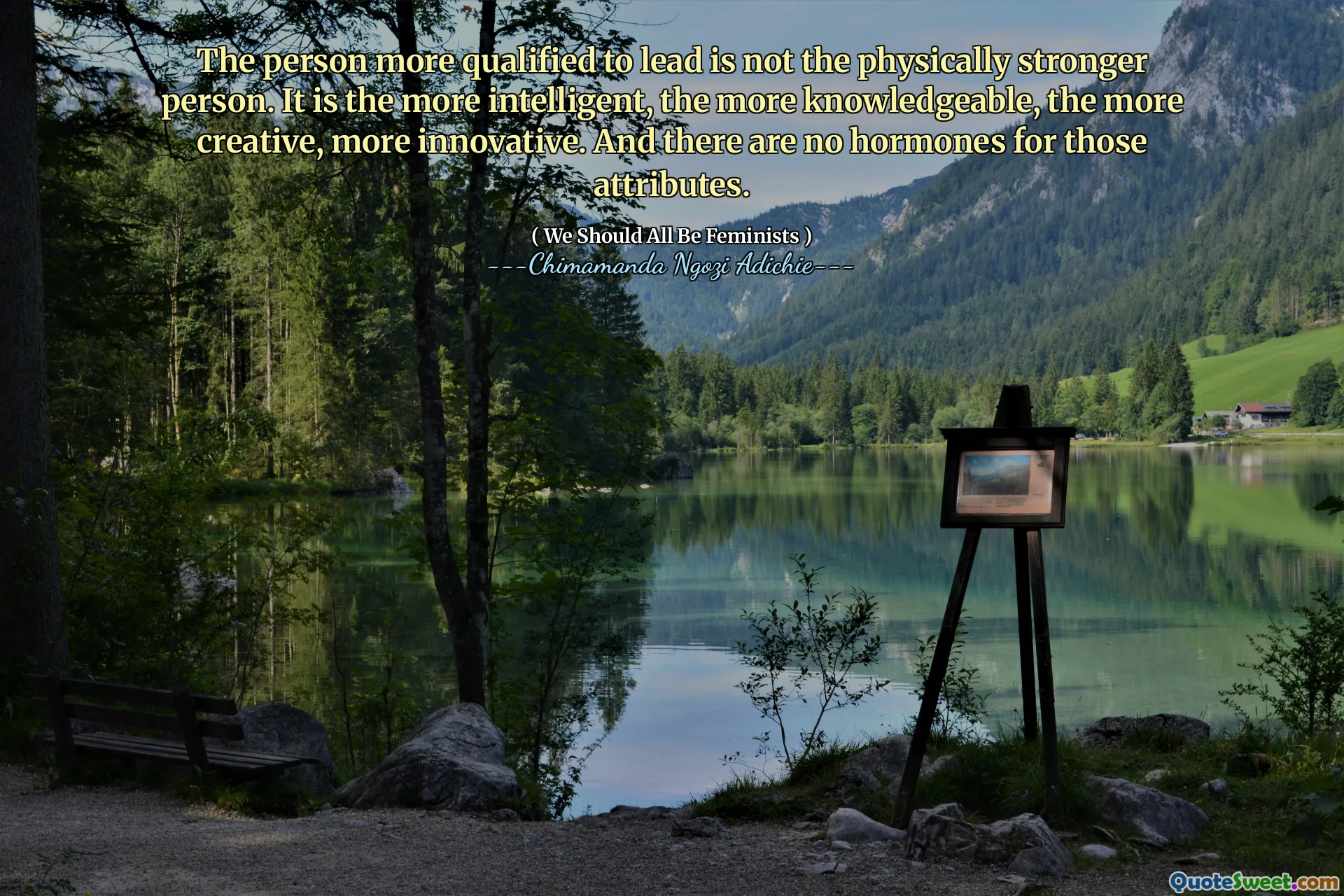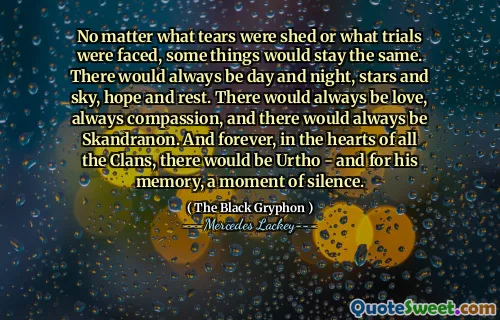
The person more qualified to lead is not the physically stronger person. It is the more intelligent, the more knowledgeable, the more creative, more innovative. And there are no hormones for those attributes.
This quote emphasizes the importance of qualities such as intelligence, knowledge, creativity, and innovation over physical strength when it comes to leadership. It challenges the common misconception that strength or physical prowess are the primary indicators of a capable leader. Instead, the focus is directed toward attributes that require mental acuity, emotional intelligence, and the ability to think creatively—traits that are essential for guiding others through complex situations and fostering progress.
In a world that often equates power with brute force or physical dominance, this perspective highlights the value of intellectual and innovative capacities. Leaders who possess these qualities are better equipped to solve problems, inspire their teams, and adapt to rapidly changing circumstances. The statement that "there are no hormones for those attributes" underscores that these qualities are not physically innate or governed by biological factors but are instead developed through education, experience, and personal growth.
By placing emphasis on mental and creative strengths, the quote encourages us to rethink societal priorities and how we assess leadership potential. It advocates for a shift towards valuing traits that promote sustainable and inclusive growth rather than superficial or purely physical attributes. This insight is particularly relevant in modern times, where complex global challenges demand thoughtful, innovative, and knowledgeable leaders to navigate uncertain terrains.
Ultimately, the quote reminds us that true leadership qualities transcend physicality and are rooted in intellectual and creative capacities that shape a better future for everyone.








